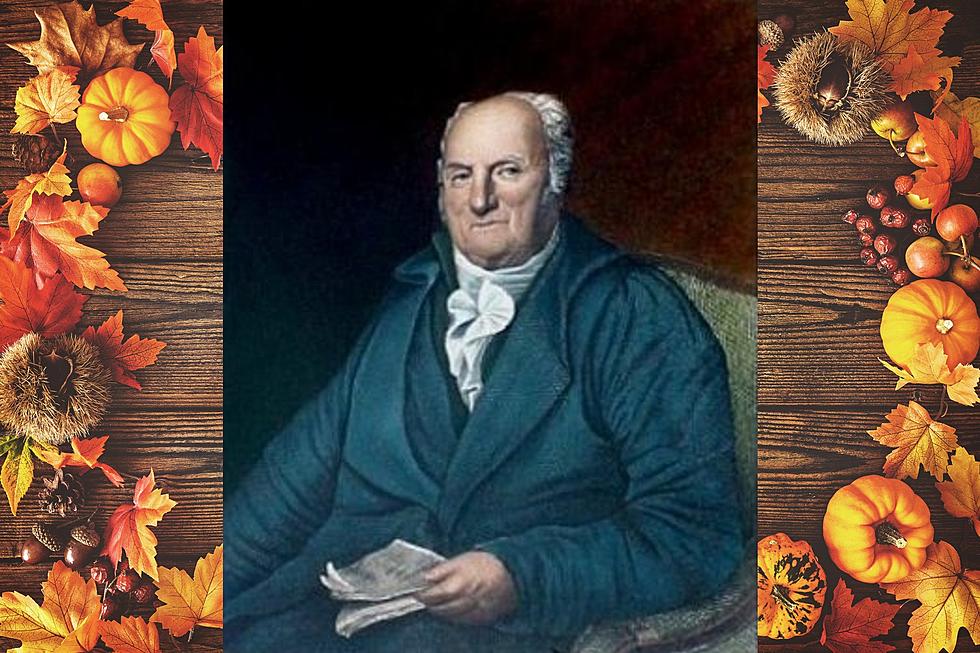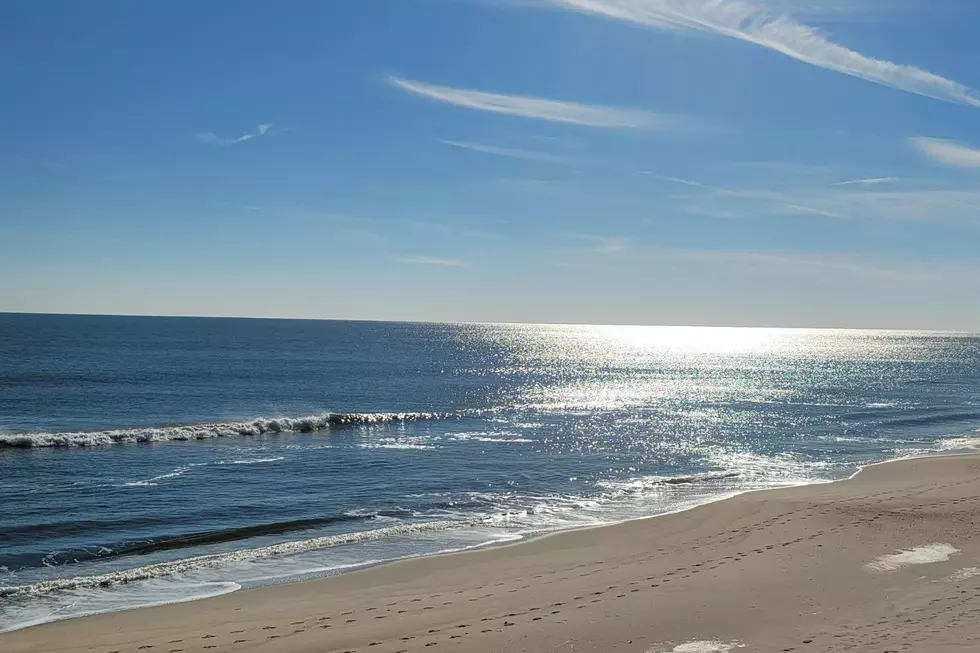
This Revolutionary-Era NJ Guy Helped Make Thanksgiving a Holiday
As we anticipate the smell of turkey permeating throughout the house, the reunion of relatives after a year of everyone off fighting their own battles, and not to mention a much-needed four-day weekend, make sure you give an extra "thanks" to a Revolutionary-era Jersey guy.
Elias Boudinot was born in Philadelphia in 1740 but lived most of his life and spent most of his professional and political career serving New Jersey.
Here is his impressive resume, according to the Biographical Directory of the United States Congress,
BOUDINOT, Elias, a Delegate and a Representative from New Jersey; received a classical education; studied law; was admitted to the bar in 1760 and commenced practice in Elizabethtown, N.J.; member of the board of trustees of Princeton College 1772-1821; member of the committee of safety in 1775; commissary general of prisoners in the Revolutionary Army 1776-1779; Member of the Continental Congress in 1778, 1781, 1782 and 1783, serving as President in 1782 and 1783, and signing the treaty of peace with England; resumed the practice of law; elected as a Pro-Administration candidate to the First, Second, and Third Congresses (March 4, 1789-March 3, 1795); was not a candidate for renomination in 1794 to the Fourth Congress; Director of the Mint from October 1795 to July 1805, when he resigned; elected first president of the American Bible Society, in 1816; died in Burlington, Burlington County, N.J., October 24, 1821; interment in St. Mary's Protestant Episcopal Church Cemetery.
On Sept. 25, 1789, just one day after the House of Representatives voted to recommend the First Amendment of the newly drafted Constitution to the states for ratification, Boudinot brought up another pressing matter.
He introduced a resolution to have President George Washington recommend to the freshly-independent citizens of the United States, "a day of public thanksgiving and prayer to be observed by acknowledging, with grateful hearts, the many signal favors of Almighty God, especially by affording them an opportunity peaceably to establish a Constitution of government for their safety and happiness.”
While the resolution passed with great support, there were several holdouts. Aedanus Burke of South Carolina argued he “did not like this mimicking of European customs, where they made a mere mockery of thanksgivings.”
A mockery? Of Thanksgiving? That would never happen. Unless...
Little did they know at the time Burke would one day be proven kinda right, but we're glad our representative Elias Boudinot got his way, too.
Just over a week after Boudinot's resolution was introduced, President Washington took action.
On October 3, 1789, Washington wrote the Thanksgiving Proclamation in his Circular to the Governors of the States.
"Whereas it is the duty of all Nations to acknowledge the providence of Almighty God, to obey his will, to be grateful for his benefits, and humbly to implore his protection and favor-- and whereas both Houses of Congress have by their joint Committee requested me to recommend to the People of the United States a day of public thanksgiving and prayer to be observed by acknowledging with grateful hearts the many signal favors of Almighty God especially by affording them an opportunity peaceably to establish a form of government for their safety and happiness.
Now therefore I do recommend and assign Thursday the 26th day of November next to be devoted by the People of these States to the service of that great and glorious Being, who is the beneficent Author of all the good that was, that is, or that will be"
Many Americans quickly took to the new tradition, embracing the celebration across the country. It wasn't new to everybody, however. Traces of early Thanksgiving celebrations exist dating back to the 1600s in New England.
But it wasn't until a loudmouth from Jersey spoke up that the new nation officially acknowledged the holiday we've all come to know and love.
Even after President Washington's Thanksgiving proclamation, the holiday did face challenges over the years.
For our third president Thomas Jefferson, Thanksgiving was off the table. He felt supporting Thanksgiving meant supporting state-sponsored religion, and he was vehemently against the mixing of church and state.
From there, the tradition continued in many variations. Presidents would proclaim days of fasting, prayer, and gratitude, but there wasn't a dedicated date to celebrate for years.
In fact, it wasn't until President Lincoln's Thanksgiving proclamation on Oct. 3, 1863, that the fourth Thursday of every November thereafter was declared an official U.S. holiday of Thanksgiving.
While Thanksgiving has seen many changes over the years, the essence of what Thanksgiving is all about: A dedicated time of reflection, what our own Elias Boudinot was so passionate about, is still alive to this day.
He was definitely onto something. For many people, it's the holiday they look forward to most. Thanksgiving weekend is typically one of the busiest times to travel every single year.
Even with Black Friday, the Retail Super Bowl From Hell kicking off the following day, and fellow holiday season checkpoint Christmas being claimed and watered down by the corporations, the true meaning of Thanksgiving is still hanging on by a thread.




